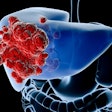A letter in the August 21 New England Journal of Medicine clarifies enrollment procedures, resulting in minor changes to the results of the widely discussed 2006 International Early Lung Cancer Action Program (I-ELCAP) lung cancer study by Dr. Claudia Henschke, Ph.D., and colleagues from Weill Medical College of Cornell University in New York City (NEJM, October 26, 2006, Vol. 355:17, pp. 1763-1771).
Henschke's August 21 letter states that one of the 38 participating centers had not ascertained the asymptomatic status of 12 patients prior to enrollment. A recent review of the data found that eight patients from the noncomplying center and four patients from the remaining 37 centers were incorrectly excluded from the original results.
"Inclusion of these 12 patients changes the 10-year survival rate for patients with lung cancer from the 80% (95% confidence interval [CI], 74 to 85) reported previously for 484 patients to 81% (95% CI, 75 to 86) for 496 patients," she wrote (NEJM, August 21, Vol. 359:8, pp. 871-873).
The 2006 paper also reported that eight patients with clinical stage I lung cancer remained untreated and died within five years of diagnosis. But the review found that only three of eight had a pathological diagnosis of stage I lung cancer. Four other patients had stage I disease confirmed on CT, but further workup was delayed "despite repeated promptings," which delayed the pathological diagnosis until the cancer had progressed to stage IV. One other patient had a fast-growing solitary pulmonary nodule but refused biopsy and treatment, succumbing to lung cancer six months after the last CT showing lung cancer.
The changes reduce the overall number of patients who were untreated and had a diagnosis of stage I lung cancer to three rather than eight and the total number of patients with clinical stage I lung cancer to 407 rather than 412, Henschke reported. "These corrections increased the 10-year Kaplan-Meier survival rate for clinical stage I lung cancer from 88% to 90%," she wrote. "The overall Kaplan-Meier survival rate remained the same, since all patients with any stage of lung cancer were included in that analysis."
Related Reading
NEJM issues correction on Henschke lung cancer study, April 3, 2008
Divergent research on CT lung screening sparks more debate, fewer answers, April 7, 2007
CT lung cancer screening reduces mortality, October 26, 2006
Copyright © 2008 AuntMinnie.com



















